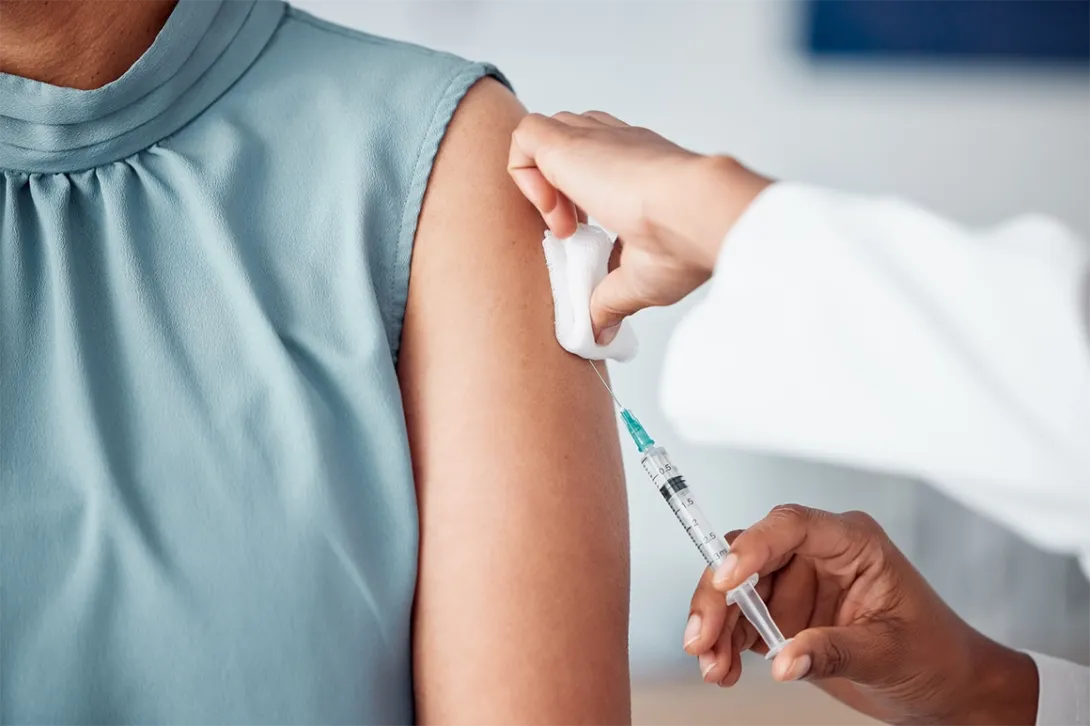
Vaccines in adults: which ones are necessary?
Vaccines are essential for the prevention of serious diseases and to maintain lifelong immunity. Find out about the most highly recommended vaccines and the population groups at which they are aimed.
Although we generally think of vaccines as being linked to childhood, vaccines are just as important in adults to protect health and prevent serious infectious diseases. Many childhood immunisations require booster doses in adulthood, and some further vaccines are essential for older adults or people with certain medical conditions. We will now discuss which vaccines are recommended for adults and which population groups they are aimed at, according to their need for protection.
Why is it crucial to be vaccinated in adulthood?
Vaccinating adults doesn’t just protect each individual, but also those close to them and the whole community. Maintaining adequate immunisation prevents the spread of infectious diseases, many of which can be highly contagious. Adult vaccines help reduce disease outbreaks, protect individuals from life-threatening respiratory infections such as influenza or pneumonia, and prevent long-term complications. As we grow older, the immune system becomes less effective, making vaccine protection particularly relevant for older adults and people with chronic diseases. The following list includes vaccines that should be considered for adults, particularly for at-risk groups and older people.
Vaccines for respiratory infections
The influenza vaccine is probably one of the best known and most widely administered vaccines among adults. That is because the flu virus is constantly changing, requiring annual immunisation to stay protected. Experts insist on the importance of this vaccine in people over 65, pregnant women, chronically ill patients and healthcare workers, as the virus can cause serious complications in these groups. In addition to preventing uncomfortable symptoms, such as a high fever and discomfort, this vaccine reduces the risk of hospitalisation and mortality in vulnerable patients.
For those with weakened immune systems or chronic conditions, the pneumococcal vaccine is a must. This vaccine protects against pneumonia and other respiratory infections, which are particularly dangerous in older adults. Pneumonia can lead to serious and persistent complications that require hospital admission and can seriously affect a patient’s quality of life, especially in people with chronic lung conditions or compromised immune systems.
Vaccine for tetanus and diphteria
The tetanus and diphtheria vaccine is notable for the frequency with which boosters must be administered, as protection wanes over time. Every ten years, it is important to receive a dose to maintain immunity against these potentially deadly infections. Tetanus, particularly, is a serious disease that can cause severe muscle spasms and, although rare in developed countries, outdoor activities or being in contact with soil increase the risk of exposure to this bacterium.
Also administered in combination with the previous one, the pertussis vaccine is key for adults who are in frequent contact with infants, such as caregivers and health care workers. Pertussis, although often mild in adults, can be lethal for newborns, who do not yet have a strong immune system. For this reason, health authorities recommend the Tdap vaccine for pregnant women in their third trimester, as this enables the newborn to be protected in their first months of life.
Vaccine for chickenpox virus
Another immunisation to consider after the age of 50 is the shingles vaccine, which prevents reactivation of the chickenpox virus, common in older people and those with weakened immune systems. This virus, which remains latent in the body, can reactivate and cause so-called shingles or herpes zoster, characterised by intense pain that sometimes persists for months (postherpetic neuralgia), impacting quality of life. This vaccine has become a common recommendation for people over the age of fifty, as it significantly reduces the symptoms and duration of this painful infection.
Vaccines for virus
Vaccination against human papillomavirus (HPV) is particularly relevant in young adults who were not vaccinated as teenagers. HPV causes several types of cancer, including cervical cancer, and can be transmitted through sexual intercourse. This vaccine is recommended for people up to the age of forty-five in some cases, although it is considered most effective when given during adolescence.
The hepatitis B vaccine has established itself as an essential preventive measure, especially in people at risk of exposure to the virus. Hepatitis B attacks the liver and can cause serious complications such as cirrhosis and liver cancer. In this regard, vaccination is key for healthcare workers, as well as for travellers and people with liver disease.
Vaccines for travelers
For travellers to countries with poor sanitary conditions or a high risk of hepatitis A, vaccination against hepatitis A is recommended. This virus, which also affects the liver, is transmitted through contaminated food or water, and can cause debilitating illness. This vaccine is also advisable for people working in the food industry and for those living with health conditions that affect the liver.
Finally, for those who were born after 1970 and did not complete the measles, mumps and rubella immunisation schedule, an MMR booster is recommended. This vaccine is important in case of outbreaks or for those travelling to areas where these diseases are common, as it helps control transmission in the community. Another key recommendation is the meningococcal meningitis vaccine, aimed at young adults living in student residence halls, the military or travellers to at-risk areas, as these populations are more vulnerable to this central nervous system infection.
Vaccinations in adults are essential to preserve public health and prevent diseases that can have serious consequences in adulthood. Reviewing one’s vaccination status and consulting with a physician about the immunisations required for each age group and medical condition are essential to protect one’s health. With proper guidance and access to information, every adult can make informed decisions to protect his or her well-being and that of the community.




